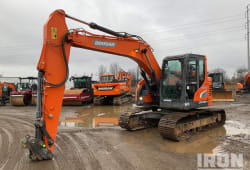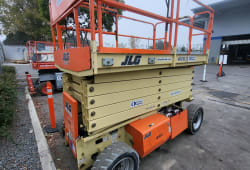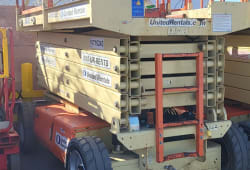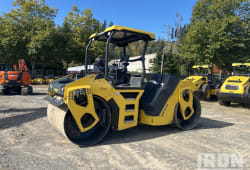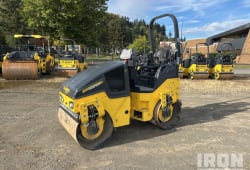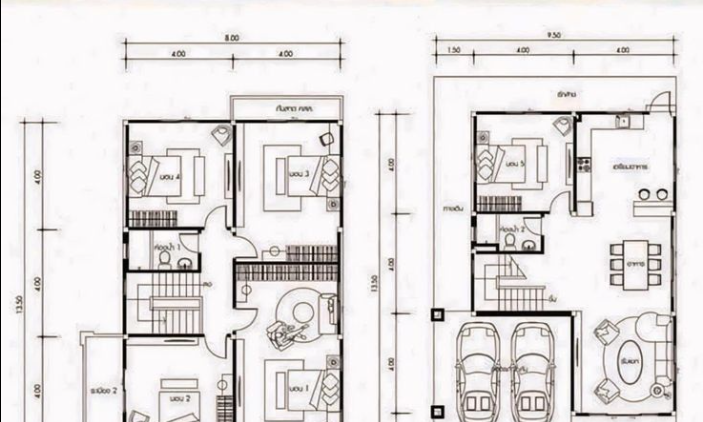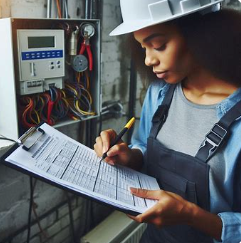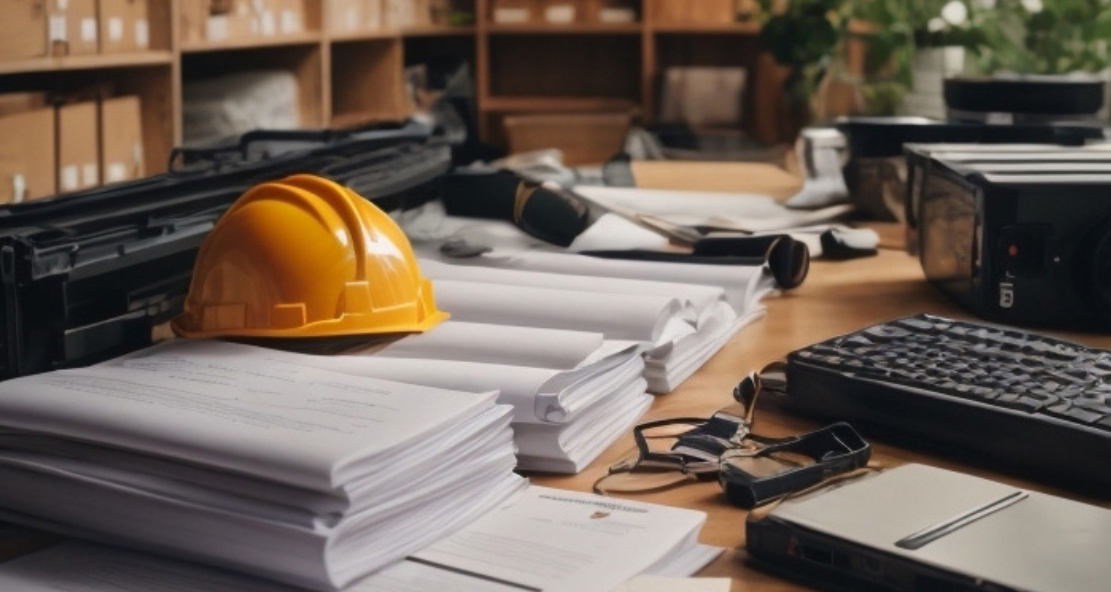Relevance of Cooling System Maintenance to Prevent Equipment Overheating
13 Lectura mínima
)
agosto 12, 2023
To ensure the efficient and reliable functioning of equipment, it is crucial to prioritize cooling system maintenance. Cooling systems play a vital role in preventing overheating, which can lead to costly equipment failures and downtime. By understanding the importance of cooling system maintenance, identifying common issues, and implementing routine and advanced maintenance techniques, you can prevent equipment from overheating and optimize its performance.
Understanding the Importance of Cooling System Maintenance
A cooling system is designed to remove excess heat from equipment, keeping its temperature within acceptable limits. Proper functioning of the cooling system ensures that the equipment operates at optimal temperatures, preventing overheating and subsequent damage. Cooling system maintenance is not only crucial for equipment performance but also plays a significant role in prolonging its lifespan and reducing repair costs.
The Role of Cooling Systems in Equipment Functioning
Cooling systems help regulate the temperature within the equipment, preventing it from reaching critical levels. They achieve this by dissipating heat through various components such as fans, heat sinks, and coolant systems. These systems maintain a balance between heat generation and heat dissipation, ensuring that the equipment operates within safe temperature limits. Without proper cooling system maintenance, the equipment can face a range of issues, including reduced performance, increased energy consumption, and in extreme cases, complete failure.
Let's take a closer look at the different components of a cooling system and how they contribute to equipment functioning:
1. Fans: Fans play a crucial role in cooling systems by circulating air and dissipating heat. They are often strategically placed within the equipment to ensure optimal airflow. Regular maintenance of fans, such as cleaning or replacing them when necessary, is essential to ensure their efficiency and prevent overheating.
2. Heat Sinks: Heat sinks are designed to absorb and dissipate heat away from critical components of the equipment. They are usually made of materials with high thermal conductivity, such as aluminum or copper. Proper maintenance of heat sinks involves checking for any blockages or damage that may hinder their ability to dissipate heat effectively.
3. Coolant Systems: Coolant systems, such as liquid cooling or air conditioning, are used in some equipment to further enhance heat dissipation. These systems circulate a cooling medium, such as water or refrigerant, to absorb and carry away heat. Regular maintenance of coolant systems includes checking fluid levels, ensuring proper circulation, and addressing any leaks or malfunctions.
Consequences of Overheating Equipment
When equipment overheats, it can lead to a multitude of problems. One of the primary consequences is a significant decrease in performance. Overheating can cause components to operate at higher temperatures, putting stress on their functionality and ultimately decreasing their lifespan. This can result in frequent breakdowns and the need for expensive repairs or replacements. Overheating can also lead to system shutdowns, potentially causing disruptions in operations and affecting productivity. It is crucial to address overheating as soon as possible to avoid these negative consequences.
Here are some additional details on the consequences of overheating equipment:
1. Reduced Efficiency: When equipment operates at higher temperatures, its efficiency decreases. This means that it may take longer to complete tasks or require more energy to perform the same functions. Over time, this can result in increased operational costs and decreased productivity.
2. Component Failure: Overheating puts excessive stress on equipment components, leading to premature failure. This can result in unexpected breakdowns and the need for costly repairs or replacements. Regular cooling system maintenance helps identify and address potential issues before they escalate into major problems.
3. Data Loss: In some cases, overheating can cause data loss or corruption. This is particularly true for electronic devices, such as servers or storage systems, where high temperatures can affect the integrity of stored information. Cooling system maintenance is crucial for protecting valuable data and ensuring its availability.
4. Safety Risks: Overheating equipment can pose safety risks, especially in industrial settings. Excessive heat can lead to fires or explosions, endangering both personnel and property. Proper cooling system maintenance, including regular inspections and preventive measures, helps mitigate these risks and ensures a safe working environment.
By understanding the consequences of overheating and the role of cooling systems, it becomes clear that regular maintenance is essential for equipment longevity and optimal performance. Taking proactive measures to ensure proper cooling system functioning can help businesses avoid costly repairs, improve productivity, and protect valuable data.
Identifying Common Issues in Cooling Systems
Recognizing the signs of a malfunctioning cooling system is essential for early detection and timely maintenance. By keeping an eye out for these indicators, you can address cooling system issues before they lead to equipment overheating.
Cooling systems play a crucial role in maintaining the optimal temperature for various equipment and machinery. Whether it's a computer, a car engine, or an industrial cooling system, a malfunctioning cooling system can have severe consequences. Therefore, it is vital to understand the signs of a cooling system failure and take appropriate action to prevent any further damage.
Signs of a Malfunctioning Cooling System
Excessive noise or vibration: Unusual noises or vibrations coming from your cooling system can indicate a problem. It could be a sign of a worn-out fan motor, loose components, or an issue with the cooling system's overall balance.
Increased equipment temperature: If you notice that your equipment is running hotter than usual, it could be a clear sign of a cooling system malfunction. Overheating can lead to reduced performance, system instability, and even permanent damage to sensitive components.
Frequent system shutdowns or reboots: A cooling system failure can cause the equipment to overheat, triggering automatic shutdowns or reboots to prevent further damage. If you experience frequent system interruptions, it's crucial to investigate the cooling system's condition.
Erratic fan operation: Inefficient or inconsistent fan operation can be an indication of a cooling system issue. Fans play a vital role in dissipating heat, and any irregularities in their performance can disrupt the cooling process.
Leakage or condensation around cooling system components: Visible leakage or excessive condensation around the cooling system's components can suggest a coolant leak or inadequate insulation. These issues can compromise the cooling system's efficiency and effectiveness.
It is essential to monitor equipment performance and conduct regular inspections to identify any of these signs. Early detection can minimize the risk of equipment damage and prevent high repair costs.
Regular maintenance and proactive measures can help ensure the longevity and optimal performance of your cooling system. Let's explore some common causes of cooling system failures that you should be aware of:
Common Causes of Cooling System Failures
Dust and debris accumulation: Over time, dust and debris can accumulate on cooling system components, obstructing airflow and reducing the system's cooling capacity. Regular cleaning and maintenance can help prevent this issue.
Fan motor failure: The fan motor is responsible for circulating air and maintaining proper airflow within the cooling system. If the fan motor fails, it can lead to inadequate cooling and increased equipment temperature.
Coolant leakages: Coolant leaks can occur due to damaged hoses, loose connections, or faulty seals. Leaked coolant reduces the cooling system's efficiency and can result in severe overheating if left unaddressed.
Clogged air filters: Air filters prevent dust and debris from entering the cooling system. When these filters become clogged, they restrict airflow and reduce the system's cooling performance.
Incorrect coolant levels: Maintaining the correct coolant levels is crucial for the cooling system's proper functioning. Insufficient coolant can lead to overheating, while excessive coolant can cause pressure build-up and potential damage to the system.
These are some of the common causes of cooling system failures. Being aware of these factors can help you address them proactively, extending the life of your equipment and avoiding unnecessary damage.
Routine Maintenance for Cooling Systems
To prevent equipment from overheating, it is crucial to establish a regular maintenance schedule for your cooling systems. This includes various maintenance activities that can significantly contribute to their performance and longevity.
Proper maintenance of cooling systems is essential to ensure the efficient operation of your equipment. By following a routine maintenance schedule, you can prevent potential issues and extend the lifespan of your cooling system.
Regular Inspection and Cleaning
Schedule regular inspections to check for any signs of wear or damage in the cooling system components. It is important to carefully examine the fans, heat sinks, and air filters for any dust or debris that may have accumulated. Dust and debris can obstruct airflow and reduce the cooling system's efficiency. To ensure optimal airflow, it is crucial to clean these components regularly.
In addition to cleaning, it is also essential to inspect the coolant levels in your cooling system. Low coolant levels can lead to inadequate cooling, which can result in equipment overheating. Regularly checking the coolant levels and addressing any leakages promptly is vital to maintain the proper functioning of your cooling system.
Replacing Worn Out Components
Over time, cooling system components may wear out or become less efficient. It is crucial to replace any worn-out fan motors, heat sinks, or cooling fans to maintain proper cooling performance. If these components are not functioning optimally, they may not provide sufficient cooling, leading to equipment overheating.
Regularly checking belts for tension and wear is also an important maintenance activity. Belts that are loose or worn out can affect the cooling system's performance and may lead to equipment failure. By proactively addressing these issues and replacing worn-out belts, you can prevent equipment from overheating and extend the life of your cooling system.
Furthermore, it is essential to keep track of the age of your cooling system components. As components age, their efficiency may decrease, making it necessary to replace them. By regularly assessing the condition of your cooling system components, you can identify any potential issues and take the necessary steps to maintain optimal cooling performance.
In conclusion, routine maintenance is crucial for the efficient operation and longevity of cooling systems. Regular inspection and cleaning, as well as the timely replacement of worn-out components, are vital to prevent equipment overheating and ensure the proper functioning of your cooling system. By following a comprehensive maintenance schedule, you can protect your equipment investment and avoid costly repairs or replacements in the future.
Advanced Cooling System Maintenance Techniques
Utilizing diagnostic tools and professional maintenance services can enhance the efficiency and effectiveness of cooling system maintenance.
When it comes to maintaining a cooling system, various techniques can be employed to ensure optimal performance. While regular maintenance is important, utilizing advanced techniques can take your cooling system maintenance to the next level.
Using Diagnostic Tools for Cooling System Maintenance
Modern diagnostic tools can help identify cooling system issues with greater accuracy. These tools provide detailed information about temperatures, fan speeds, and coolant flow rates. By utilizing these tools, you can more effectively troubleshoot and resolve cooling system problems, minimizing the risk of equipment overheating.
One of the most commonly used diagnostic tools is a thermal imaging camera. This tool allows you to visually identify hot spots in the cooling system, which can indicate areas of concern. By detecting these hot spots early on, you can take the necessary steps to prevent potential failures or breakdowns.
In addition to thermal imaging cameras, there are also advanced diagnostic software programs available. These programs analyze data collected from the cooling system and provide detailed reports on its performance. By studying these reports, you can gain valuable insights into the system's efficiency and identify any areas that may require attention.
Professional Maintenance Services for Complex Systems
For more complex cooling systems, it is often beneficial to seek professional maintenance services. These experts have the knowledge, experience, and specialized equipment to assess, repair, and optimize cooling systems effectively. Engaging professionals can provide peace of mind, knowing that your cooling system is in capable hands.
When it comes to complex cooling systems, some various components and subsystems require expert attention. This includes intricate piping networks, advanced control systems, and specialized cooling units. Professional maintenance services have the expertise to navigate these complexities and ensure that every aspect of the cooling system is functioning optimally.
Furthermore, professional maintenance services often offer preventative maintenance programs. These programs involve regular inspections and maintenance tasks to keep the cooling system in top condition. By proactively addressing potential issues, you can avoid costly breakdowns and extend the lifespan of your cooling system.
Additionally, professional maintenance services can provide valuable recommendations for system upgrades and improvements. With their in-depth knowledge of the latest cooling technologies, they can suggest modifications that can enhance the efficiency and performance of your cooling system. By staying up to date with advancements in the field, you can ensure that your cooling system remains at the forefront of technology.
In conclusion, utilizing diagnostic tools and professional maintenance services can greatly benefit the maintenance of cooling systems. By incorporating these advanced techniques, you can identify and address issues more effectively, ensuring the optimal performance and longevity of your cooling system.
Emergency Measures for Overheating Equipment
Despite proactive maintenance, there may be instances where equipment still overheats. Being prepared with emergency measures can help minimize the potential damage caused during such situations.
Immediate Steps to Take When Equipment Overheats
Power down the equipment immediately
Allow it to cool down before restarting
Check for any obstructions or blockages in the cooling system components
Ensure that the cooling fans are working properly
By taking these immediate steps, you can prevent further overheating and potential damage to your equipment.
When to Call a Professional for Overheating Equipment
If you experience repeated episodes of equipment overheating or are unsure of the underlying cause, it is advisable to seek professional assistance. A qualified technician can diagnose the issue, identify any underlying problems with the cooling system, and implement appropriate solutions to prevent further overheating.
Preventive Measures to Avoid Overheating
Implementing preventive measures is essential to protect your equipment and ensure its reliable performance over the long term.
Implementing a Regular Maintenance Schedule
Establishing a regular maintenance schedule is vital to prevent overheating. By adhering to a predetermined maintenance plan, you can identify and address cooling system issues before they escalate. Proactive steps can significantly minimize the risk of equipment failure due to overheating.
Investing in High-Quality Cooling Systems
Choose cooling systems that are specifically designed for your equipment and provide efficient cooling performance. Investing in high-quality cooling systems can prevent overheating and ensure reliable operation, minimizing the risk of unplanned downtime and costly repairs.
Conclusion: The Long-Term Benefits of Cooling System Maintenance
Regular cooling system maintenance not only prevents equipment overheating but also offers numerous long-term benefits.
Cost Savings from Preventive Maintenance
Proper cooling system maintenance can help you identify and resolve issues before they lead to costly equipment failures. By investing in preventive maintenance, you can minimize repair expenses and avoid the high costs associated with equipment downtime.
Ensuring Equipment Longevity and Efficiency
By effectively maintaining cooling systems, you can extend the lifespan of your equipment and ensure optimal performance. Smooth and efficient equipment operation leads to increased productivity and reduced risks of interruption, providing long-term benefits to your business.
By prioritizing cooling system maintenance, you can prevent equipment overheating, optimize performance, and protect your investment. Implementing routine maintenance, utilizing advanced techniques, and taking preventive measures will ensure the smooth operation of your equipment, saving you time, money, and potential headaches in the long run.

Caleb Woods is an experienced content specialist and an editor at Boom & Bucket, blending his journalism background with expertise in the heavy equipment industry. He delivers engaging, informative content to help professionals stay informed and make smarter decisions in the machinery market.


